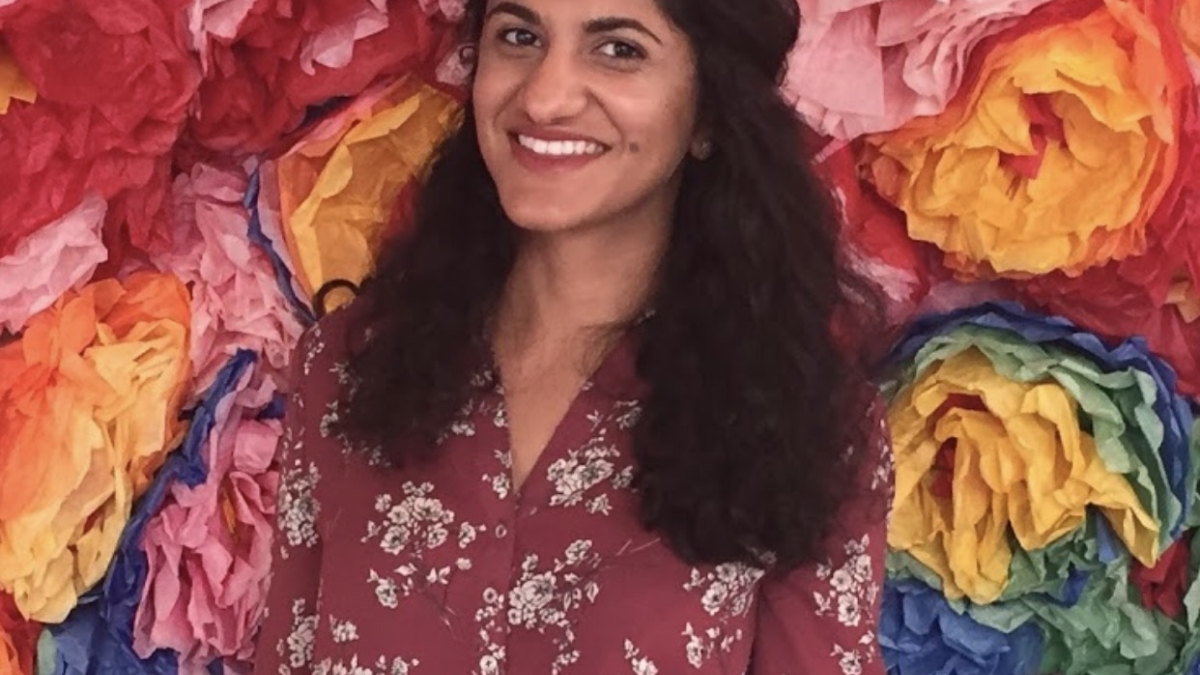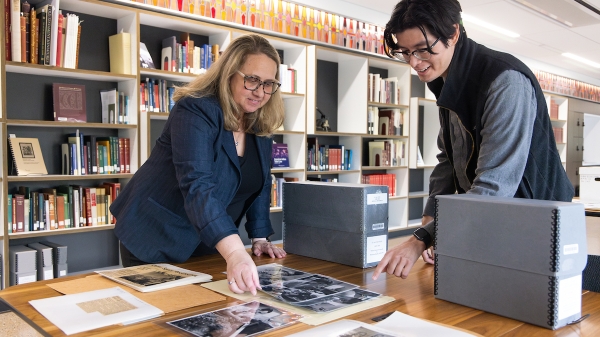Inner workings of the human mind drive grad's curiosity

During her time at ASU, Navneet Kaur got involved in many ways, including working at the Child Study Lab, serving as an intern at the Young Minds Center for children with autism and learning disabilities, and volunteering on several research projects like the Arizona Twin Lab and the REACH Courage Lab.
Editor’s note: This is part of a series of profiles for spring 2018 commencement.
Navneet Kaur was raised in India and moved to Phoenix when she was 9 years old. In high school, she took her first psychology class and discovered a passion for the field of child development. Working as a volunteer at an elderly center served to reinforce her idea that she was fascinated by the inner workings of the human mind and wanted to further her education with a focus on young children’s cognitive development.
When she came to ASU, Kaur decided to double major in psychology and family and human development.
During her time here, Kaur got involved in many ways, including working at the Child Study Lab, serving as an intern at the Young Minds Center for children with autism and learning disabilities, and volunteering on several research projects like the Arizona Twin Lab and the REACH Courage Lab. It is through these experiences that Kaur found that she has an interest in both typical and atypical development.
Furthermore, she learned that there is often a troublesome gap between research that is being conducted and the translation of that research into practice. Taking advantage of experiences that immersed her in both of these worlds has given Kaur a unique perspective on the need for translation and dissemination of research in real world settings.
After graduation, Kaur has plans to continue working in research labs and possibly attend graduate school. This will allow her to gain experience and further her education on the most effective ways to bridge the gap between research and practice.
Question: What was your “aha” moment, when you realized you wanted to study the field you majored in?
Answer: I think my "aha" moment was during my last semester of high school. I volunteered at an elderly care home and worked with patients with dementia. I was so intrigued by how their minds worked and their behaviors. Since then, my interest has shifted to child development and child psychopathology, but that was the first time I realized I wanted to study psychology.
Q: What’s something you learned while at ASU — in the classroom or otherwise — that surprised you, that changed your perspective?
A: Before starting college, I thought psychology only meant sitting on a couch in front of a psychologist. As I learn more about the field of psychology and human development, it seems psychology is in everything we do. It is amazing what you can do with knowledge in psychology!
Q: Why did you choose ASU?
A: Initially, I chose ASU because it was close to home. I am so glad I chose to go here because I have met some amazing people and learned so much the past four years.
Q: What’s the best piece of advice you’d give to those still in school?
A: I think one piece of advice that I would give to students still in school is try something new! Whether it is joining a club or a lab or talking to a random person in the library, just try something new.
Q: What was your favorite spot on campus, whether for studying, meeting friends or just thinking about life?
A: My favorite spot on campus is Noble Library; my freshman year I met all my friends there. We would meet in there between class and attempt to do homework, but mostly we just talked about life. It was our second home. When it got flooded my freshman or sophomore year, I felt so lost and did not know where I would go in between class.
Q: What are your plans after graduation?
A: I plan to work in a research lab after graduation to gain some more valuable experience in the field of research. My long-term goal is to close the gap between research and practice. Research is doing some great work that never reaches the target population. I want to disseminate research to providers, so they can use evidence-based treatment when treating patients.
Q: If someone gave you $40 million to solve one problem on our planet, what would you tackle?
A: If I had $40 million I would definitely open up clinics where anyone with mental health problems can go for help. Insurance companies often do not cover all sessions needed for improvement, and many times mental health issues are ignored. I would want to provide services to those in need, especially children.
More Sun Devil community

Dean’s Medalist finds freedom — and a second chance — in literature
When Phoenix resident Wade Sharp was last sent to what he termed “the hole” — solitary confinement in a county jail — he wasn’t…

University Archives chronicles more than 140 years of Sun Devil history
Editor’s note: This is part of a monthly series spotlighting ASU Library’s special collections throughout 2024.What was…

3 outstanding ASU alumni named The College Leaders of 2024
Three outstanding Arizona State University alumni from The College of Liberal Arts and Sciences will be named as this year’s…